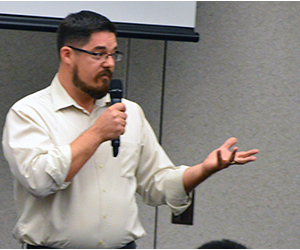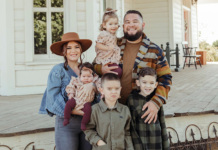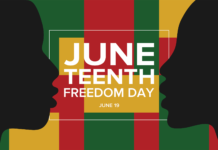
Several residents told the Maricopa Unified School District governing board at its meeting Wednesday they support putting an override measure on the November ballot.
Superintendent Steve Chestnut formed an override recommendation committee to discuss the option in response to the Legislature’s decision to cut next year’s public-charter school funding by more than a third and cease funding it all together after the 2014-15 school year.
The district will now receive $2.3 million from the state to operate its charters – far less than the $3.7 million it had expected prior to the budget cut.
Arizona law allows school districts to get voter approval to override the state’s approved funding by up to 15 percent.
Jeff Kramarczyk, a member of the override committee and president of the Maricopa Education Foundation, said passing an override would address the problems of large class sizes and teacher turnover.
“I can say as a parent, as a business owner and as president of the Maricopa Education Foundation, if you approve to do an override you will have my full support … you will have full support from the entire (MEF) board and all our volunteers to campaign and try to get that passed,” Kramarczyk said.
“What an override allows us to do is make things secure for the next seven years,” said Joshua Judd, also a member of the committee. “If we do decide (to go) with a seven-year override, what that does is tell the community, regardless of what goes on in the state of Arizona, your kid’s education is going to be secure.”
Jo Holt, a Democratic candidate for the Arizona State Senate in Legislative District 11, said some say an override is not necessary and schools should work within their budgets.
“(MUSD does) work within their budget; it’s just that the budget is insufficient,” she said. “You don’t cut your way to prosperity, you don’t cut your way to quality education – you have to make the investment.”
Murray Siegel, currently a professor at Arizona State University, said he’s taught at every level during his 40-year career. He said state universities have raised their tuition in response to the Legislature’s reducing funding for higher education, but elementary and secondary schools don’t have that ability.
“How do we get the proper information to those people who will vote?” he asked.
Superintendent Steve Chestnut said the override committee recommended placing an override question on the November ballot. The committee was divided between a 10-percent and 15-percent override to last seven years.
“It all comes down to what can we put on the ballot that has a chance to pass?” Chestnut said.
The override committee reached consensus to ask for an override to fund:
• additional teachers to reduce the size of classes
• gifted and honors programs
• fine arts
• foreign language
• physical education
• extra-curricular activities
• athletics
• instructional technology
“These are the types of programs Kyrene School District offers in greater quantity than we have here,” he said.
Board President Torri Anderson asked the superintendent if the committee was “OK” with recommending an override that would cost taxpayers an additional $173 per $100,000 of assessed valuation on their homes per year to fund a 15-percent override.
***ADVERTISEMENT***The actual cost of the override to homeowners has not yet been calculated and these numbers are estimates, Chestnut said.
In response to Anderson’s question, the superintendent admitted that, while they were invited, “Sometimes the fiscal conservative voices are not in the room.”
Coutre said a 15-percent override would raise about $4 million a year – close to the $3.7 million the district expected the state to fund the district for the six schools it converted to public charters.
Board member Scott Bartle brought up failed override attempts in recent years and suggested the superintendent consider “soliciting an analysis from a professional” to determine the chances and strategy for passing an override.
Bartle said there are direct and indirect costs with even trying and “I’d want to make sure there is a path to victory.”

![Who’s the Best Mom InMaricopa? Nominate now! Marlene Marshall, Christina Olivares, and Meghan Bremer. [Bryan Mordt]](https://www.inmaricopa.com/wp-content/uploads/2023/05/BCM_8465-218x150.jpg)



![Maricopa sheds tears amid Maui wildfires that killed dozens For Maricopa resident Janelle Gomez, the sorrow mirrors the loss of a family member. [Brian Petersheim]](https://www.inmaricopa.com/wp-content/uploads/2023/08/Gomez-218x150.jpg)
![Embracing Freedom: Celebrating the Fourth of July Councilmember Vincent Manfredi at Great American 4th 2021 [Victor Moreno]](https://www.inmaricopa.com/wp-content/uploads/2023/07/2021-Great-American-4th-e1688414543522-218x150.jpg)










![Alleged car thief released without charges Phoenix police stop a stolen vehicle on April 20, 2024. [Facebook]](https://www.inmaricopa.com/wp-content/uploads/2024/04/IMG_5040-100x70.jpg)